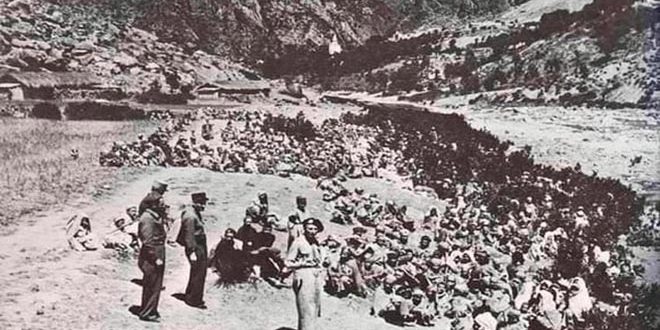Damascus (ST): The Algerians commemorated the seventy-seventh anniversary of the massacres of May 8, 1945, perpetrated by French colonialism, in which tens of thousands of martyrs were killed, with massacres described as the most horrific, barbaric and brutal that affected men and women and constituted a painful moment in the modern history of Algeria and later paved the way for the revolution of one and a half million martyrs.
In a picture similar to the crimes of European colonialism everywhere its armies reached with all their brutality and racism, the massacres of May 8 in Algeria were a model for the atrocities, hatred, and racism that characterized the French colonialists at the time, as its forces carried out massacres that included most of Algeria, during which about 70 thousand martyrs fell, especially in The regions of Setif, Mesaliya, Guelma and Kharrata.
Those massacres began when, after the end of World War II, the Algerians rallied in the city squares, raising flags, chanting slogans of freedom, and demanding their right to independence from the usurping occupier, to confront French colonialism with the most horrific methods of abuse, mass murder, arrest, looting of villages and property.
Peaceful demonstrations turned into bloody confrontations, after which colonialism summoned military supplies with the aim of annihilating defenseless demonstrators without distinguishing between a child, an old man and a woman, thus writing the ugliest and bloodiest pages of the black history of France.
The French colonial administration at the time was not satisfied with the results of those brutal massacres, but rather dissolved the Algerian national movements and political parties, declared martial law, arrested thousands of Algerians and placed them in detention, and issued death sentences, life imprisonment, exile outside the country, and deprivation of national rights.
On the occasion of commemorating these massacres, which became a national day of memory every year, Algerian President Abdelaziz Tebboune sent a message to the Algerian people, in which he said: “The atrocities that Sétif, Qalma, Kharrata and other cities witnessed on May 8, 1945 will continue to bear witness to heinous massacres that cannot be tolerated.” It is forgotten, but will remain engraved with its horrific tragedies in the national memory and in the historical reference for which the struggle of our proud people against the oppression of colonialism and the yearning for freedom and dignity through popular resistance was founded and directed by the blessed liberation revolution on the first of November 1954.”
K.Q.

